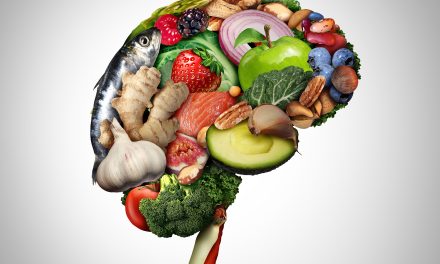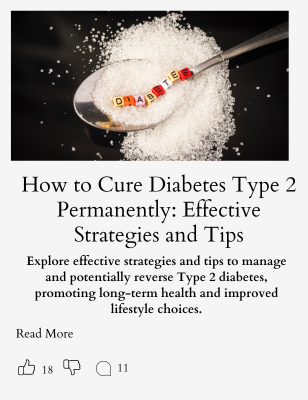As we age, our memory may not be as sharp as it once was. This can be concerning, but there are ways to keep our minds strong. Regular exercise, a healthy diet, and staying socially active can help prevent memory loss in old age. These simple steps can make a big difference in keeping our brains healthy.
Many people think memory loss is a normal part of aging. This is not always true. We can take steps to keep our minds sharp. Learning new skills, doing puzzles, and reading can help. These activities keep our brains active and may slow down memory loss.
Stress and lack of sleep can harm our memory. It’s important to find ways to relax and get enough rest. Talking to friends, doing things we enjoy, and getting outside can all help. These activities are good for our brains and our overall health.
Key Takeaways
- Exercise, diet, and social activities help maintain brain health
- Learning new skills and doing puzzles can slow memory decline
- Managing stress and getting enough sleep supports cognitive function
Understanding Memory Loss
Memory loss is a common concern as people age. Some changes are normal, while others may signal more serious issues. Learning about memory can help people take steps to keep their minds sharp.
The Science of Memory and Aging
As we get older, our brains change. The hippocampus, which helps form memories, may shrink. Brain cells can communicate less effectively. These changes can make it harder to learn new things or recall information.
Normal age-related memory changes include:
- Taking longer to learn new things
- Trouble remembering names or appointments
- Misplacing items more often
These changes don’t usually interfere with daily life. More serious memory problems may be a sign of mild cognitive impairment or dementia. It’s important to talk to a doctor if memory issues cause concern.
Common Myths About Memory Loss
Many beliefs about memory loss in aging aren’t true. Here are some common myths:
Myth: All memory loss means dementia. Fact: Some forgetfulness is normal with age.
Myth: Nothing can be done about memory loss. Fact: Many strategies can help maintain or improve memory.
Myth: Only older adults have memory problems. Fact: People of all ages can experience memory issues.
Understanding these facts can help people approach memory concerns with a balanced perspective. Many effective ways exist to keep the mind active and healthy at any age.
Lifestyle Modifications
Making changes to your daily habits can have a big impact on brain health. Small tweaks to diet, exercise, and mental activities can help keep your mind sharp as you age.
Balanced Diet and Nutrition
Eating the right foods helps protect brain function. A Mediterranean-style diet with lots of fruits, vegetables, whole grains, and healthy fats is good for the brain. Foods rich in omega-3 fatty acids, like fish, are key.
Berries, leafy greens, and nuts provide antioxidants that fight inflammation. Limiting sugar, salt, and processed foods is smart. Staying hydrated by drinking enough water each day also supports brain health.
Certain vitamins and minerals are important too. B vitamins, vitamin D, and magnesium all play a role in brain function. Talk to a doctor about whether supplements might be helpful.
Physical Exercise
Regular physical activity boosts brain health in many ways. It increases blood flow to the brain, reduces inflammation, and stimulates growth of new brain cells.
Aim for at least 150 minutes of moderate exercise per week. This could include:
- Brisk walking
- Swimming
- Cycling
- Dancing
Even short bursts of activity throughout the day can help. Try taking the stairs instead of the elevator or parking farther away when running errands.
Balance and coordination exercises are great for the brain too. Yoga, tai chi, or simple balancing poses can improve brain-body connection.
Cognitive Activities
Keeping your mind active is key to preventing memory loss. Learning new skills creates new connections between brain cells.
Try these brain-boosting activities:
- Learn a new language
- Do crossword puzzles or Sudoku
- Read books on unfamiliar topics
- Take up a musical instrument
- Try crafts like knitting or painting
Social activities also stimulate the brain. Join a club, volunteer, or spend time with friends and family. Engaging in meaningful conversations exercises your mind.
Mix up your routine to challenge your brain in new ways. Take a different route to work or use your non-dominant hand for simple tasks.
Social Engagement
Staying connected with others plays a key role in keeping our minds sharp as we age. Social activities provide mental stimulation and emotional support that can boost brain health.
Staying Socially Active
Social engagement may protect against cognitive decline in older adults. Regular interactions with family and friends keep the mind active and challenged. Seniors can:
• Call or video chat with loved ones weekly • Join clubs or groups based on hobbies and interests • Attend community events and gatherings • Volunteer for local organizations
These activities provide chances to talk, laugh, and share experiences. They also create a sense of purpose and belonging.
Community Participation
Taking part in community life offers many brain-boosting benefits. Social connections and activities may help prevent memory loss in seniors. Ways to get involved include:
• Joining a senior center or community center • Taking classes at a local college or library • Participating in faith-based groups or services • Attending neighborhood meetings or events
These activities encourage learning, problem-solving, and teamwork. They also foster new friendships and social networks that support mental well-being.
Mental Health and Wellbeing
Taking care of your mental health is key to keeping your mind sharp as you age. Good stress management and quality sleep can help protect your memory and cognitive function.
Stress Management
Chronic stress can harm brain health and memory. To manage stress, try deep breathing exercises. Take slow, deep breaths for 5 minutes daily. This can lower stress hormones and improve focus.
Regular exercise also reduces stress. Aim for 30 minutes of moderate activity most days. Walking, swimming, or gentle yoga are good options. Physical activity boosts mood and helps prevent memory problems.
Socialize with friends and family. Strong social connections lower stress and support brain health. Join a club, volunteer, or schedule regular meetups with loved ones.
Quality Sleep
Good sleep is vital for memory and brain function. Aim for 7-9 hours of sleep each night. Create a relaxing bedtime routine to signal your body it’s time to rest.
Keep a consistent sleep schedule. Go to bed and wake up at the same time daily, even on weekends. This helps regulate your body’s internal clock.
Make your bedroom sleep-friendly. Use blackout curtains, a white noise machine, and a comfortable mattress. Avoid screens for an hour before bed, as blue light can disrupt sleep patterns.
Limit caffeine and alcohol, especially in the evening. Both can interfere with sleep quality. Instead, try a calming herbal tea before bed.
Medical Considerations
Regular medical care and managing health conditions play key roles in preventing memory loss as we age. Staying on top of check-ups and treating chronic issues can help protect brain health over time.
Regular Health Check-Ups
Seeing a doctor regularly helps catch memory issues early. Annual physicals allow doctors to check cognitive function and spot changes. Blood tests can reveal vitamin deficiencies or thyroid problems that affect memory.
Brain scans may be recommended to check for issues like small strokes or tumors. Memory tests given by doctors track changes over time.
Doctors can also review medications that may affect memory. Some drugs have side effects that impact cognition. Adjusting doses or switching medications may help.
Management of Chronic Conditions
Certain health issues raise the risk of memory loss if not controlled. These include:
- High blood pressure
- High cholesterol
- Diabetes
- Heart disease
Keeping these in check through medication and lifestyle changes protects the brain. For example, lowering blood pressure may reduce dementia risk.
Depression and sleep problems can also hurt memory. Treating these improves brain function. Proper care of chronic pain helps too.
Some medications for health conditions may affect memory. Doctors can adjust doses or find alternatives to reduce this risk.
Medication Management
Proper medication management plays a crucial role in preventing memory loss as we age. Taking the right medications as prescribed and understanding their effects can help maintain cognitive function.
Understanding Medication Impact
Some medications can affect memory and cognitive abilities. Certain drugs used to treat advanced memory loss may have side effects. It’s important to talk with a doctor about potential cognitive impacts of medications.
Keep a list of all medications, including over-the-counter drugs and supplements. Review this list with a healthcare provider regularly. Ask about alternatives if any medications seem to affect memory or thinking.
Some medications that may impact cognition include:
- Antihistamines
- Sleep aids
- Antidepressants
- Anti-anxiety medications
A doctor can help determine if any medications are contributing to memory issues and suggest adjustments if needed.
Adherence to Prescriptions
Taking medications as prescribed is key for managing health conditions that could affect memory. Using a pill organizer can help keep track of daily medications.
Set reminders on a phone or use a medication reminder app. Refill prescriptions on time to avoid missed doses. Consider asking a family member or caregiver for help with medication management if needed.
Keep medications stored properly and check expiration dates regularly. Dispose of old or unused medications safely. Talk to a pharmacist about any questions regarding proper medication use or potential interactions.
Brain-Healthy Habits
Staying mentally active and trying new things can help keep your brain sharp as you age. These habits challenge your mind and may lower the risk of memory problems.
Continuous Learning
Learning new skills keeps your brain engaged. Try taking up a foreign language or musical instrument. Even small daily habits like reading or doing puzzles can help.
Online courses are an easy way to learn from home. Pick topics that interest you, whether history, science, or art. This mental exercise creates new connections between brain cells.
Join a book club to combine reading with social interaction. Discussing books with others helps you think deeply about what you’ve read. Local libraries often host these groups for free.
Creative Pursuits
Art and crafts stimulate different parts of the brain. Painting, drawing, or sculpting can improve focus and problem-solving skills. These activities also reduce stress, which is good for brain health.
Writing is another great option. Start a journal or try creative writing. This helps with memory and self-expression. Poetry can be especially good for working with language in new ways.
Gardening combines creativity with gentle exercise. Planning a garden, caring for plants, and watching them grow engages many brain functions. It also provides a sense of accomplishment and connection to nature.
Technology and Memory Aids
New devices and apps can help older adults remember important things. These tools make it easier to keep track of tasks, dates, and information as we age.
The Role of Tech in Memory Support
Technology offers many ways to boost memory in later life. Smartphones have built-in reminders and calendars to track appointments and tasks. Voice assistants like Alexa or Siri can set alarms and answer questions.
Digital photo frames display family photos to help recall memories. GPS devices prevent getting lost while driving. Password managers securely store login info.
Apps like Lumosity offer brain games to exercise memory skills. Fitness trackers remind people to stay active, which supports brain health. Medication reminders help manage prescriptions on time.
How to Use Memory Aids
Start with simple tech tools and add more over time. Set up smartphone reminders for daily tasks and appointments. Use a digital calendar to track events.
Make lists in note-taking apps to remember groceries or to-dos. Try brain training games for 15 minutes a day. Set alarms as medication reminders.
Keep devices charged and in easy-to-find spots. Ask family for help setting up new tools. Be patient when learning new tech. With practice, these aids become simple to use.
Nutritional Supplements
Some vitamins and minerals may help support brain health and memory as we age. These supplements can be part of a strategy to maintain cognitive function. It’s important to choose evidence-based options and talk to a doctor before starting any new supplement regimen.
Evidence-Based Supplements
Omega-3 fatty acids may help protect brain cells. They are found in fish oil supplements or algae-based options for vegetarians.
Vitamin B12 is vital for nerve function. Older adults often have low B12 levels. A B-complex supplement can help ensure adequate intake.
Vitamin D plays a role in brain health. Many people don’t get enough from sunlight and diet alone. A vitamin D supplement may be beneficial.
Antioxidants like vitamins C and E might protect brain cells from damage. Eating antioxidant-rich foods is ideal, but supplements can fill gaps.
Consulting with Healthcare Providers
It’s crucial to talk to a doctor before starting any new supplements. They can check for interactions with medications and health conditions.
A blood test can reveal nutrient deficiencies. This helps target supplementation to specific needs.
Doctors can recommend safe dosages based on age, weight, and health status. They may suggest prescription-strength supplements if needed.
Regular check-ups allow monitoring of supplement effects. Dosages may need adjustment over time.
Pharmacists are also good resources. They can give advice on supplement quality and potential side effects.
Home and Environment
Your home plays a key role in maintaining cognitive health as you age. Making small changes to your living space can boost memory and keep you safe. Here are some ways to create a memory-friendly and secure home environment.
Creating a Memory-Friendly Home
Set up memory stations around your house. Put a notepad and pen by the phone to jot down messages. Place a calendar in a central spot to track appointments. Use labels on drawers and cabinets to find items easily.
Keep things organized. Give important items like keys and glasses a set place. Use clear storage containers to see what’s inside. Simplify your environment to reduce clutter and confusion.
Use memory aids. Hang a large clock with the date. Put up a bulletin board for reminders. Try digital assistants like Alexa for alarms and to-do lists.
Safety and Accessibility
Install grab bars in the bathroom near the toilet and shower. Add non-slip mats to prevent falls. Ensure good lighting, especially on stairs and in hallways.
Remove tripping hazards like loose rugs or cords. Keep walkways clear. Consider a medical alert system for emergencies.
Make daily tasks easier. Place commonly used items at waist level. Use lever-style doorknobs and faucet handles. Add risers to chairs and toilets if needed.
Frequently Asked Questions
Memory loss in old age is a common concern. These questions address key strategies for maintaining cognitive function, distinguishing normal changes from dementia, and supporting elderly loved ones.
What are effective methods to improve memory and concentration in seniors?
Seniors can boost memory and focus through mental exercises. Crossword puzzles, learning a new language, or playing an instrument challenge the brain. Physical activity also helps by increasing blood flow to the brain. A healthy diet rich in omega-3 fatty acids may support brain health.
Social engagement keeps the mind active. Joining clubs or volunteering provides mental stimulation. Getting enough sleep is crucial for memory consolidation.
What medicines are commonly recommended for memory loss in older adults?
Doctors may prescribe certain medications for memory issues. Cholinesterase inhibitors like donepezil can help with mild to moderate Alzheimer’s disease. Memantine is used for moderate to severe cases.
Some doctors recommend vitamins B12 and D if deficiencies are present. Omega-3 supplements may be suggested, though more research is needed on their effectiveness.
How can you distinguish between normal age-related memory loss and dementia?
Normal aging may cause occasional forgetfulness or slower recall. Dementia involves more severe memory loss that interferes with daily life. Forgetting recent events or conversations is common in dementia.
Difficulty with familiar tasks or getting lost in familiar places may signal dementia. Normal aging doesn’t typically affect judgment or problem-solving skills to the same degree.
What lifestyle strategies can help prevent memory loss as we age?
Regular exercise is key for brain health. Aim for 150 minutes of moderate activity weekly. A heart-healthy diet rich in fruits, vegetables, and whole grains supports brain function.
Staying socially active and engaged in hobbies keeps the mind sharp. Managing stress through relaxation techniques like meditation can also help preserve memory.
What cognitive exercises are recommended to enhance memory in the elderly?
Word games and puzzles challenge the brain. Sudoku and jigsaw puzzles improve problem-solving skills. Reading books or newspapers regularly stimulates the mind.
Learning new skills like dancing or painting creates new neural connections. Memory training exercises can improve recall and cognitive function.
How should one address increasing forgetfulness in an elderly parent?
Approach the topic gently and express concern. Encourage a visit to the doctor for a thorough evaluation. Offer support with daily tasks without taking over completely.
Help create memory aids like calendars or pill organizers. Ensure the home is safe and free of hazards. Consider professional help if memory issues significantly impact daily life.
Conclusion
Memory loss is not an unavoidable part of aging. Many effective strategies can help keep your mind sharp as you get older.
Staying mentally and physically active is key. Regular exercise and brain-stimulating activities like puzzles or learning new skills can boost cognitive function.
A healthy diet rich in fruits, vegetables, and omega-3 fatty acids supports brain health. Certain supplements may also help protect memory.
Managing stress and getting enough sleep are crucial for maintaining cognitive abilities. Relaxation techniques and good sleep habits can make a big difference.
Social connections play a vital role too. Spending time with loved ones and staying engaged in the community helps keep the mind active.
Regular check-ups with a doctor can catch any issues early. Early detection and treatment of health problems can prevent or slow memory decline.
By adopting these strategies, older adults can take proactive steps to maintain their mental sharpness and enjoy a high quality of life as they age.

















